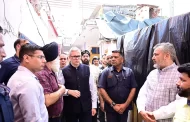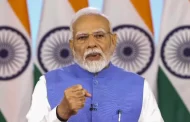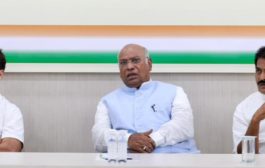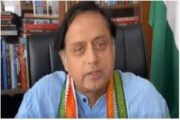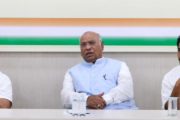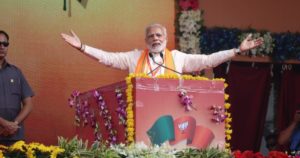
On November 8, 2016, Prime Minister Narendra Modi declared that, Rs 500 and Rs 1,000 notes, about 86% of the Indian currency, would no longer be accepted as legal tender. Early in 2017, just months after demonetisation, the Bharatiya Janata Party swept to power in Uttar Pradesh. The party hit the campaign trail armed with twin “surgical strikes”, one reportedly at the Line of Control against Pakistani threats to national security and the other within, on India’s cash economy, to purge the demons of black money and corruption. It worked. Voters fresh from bank and ATM queues, voters who had seen their savings evaporate overnight, who had lost their jobs and livelihoods because the cash economy on which large parts of India subsisted was in tatters, chose the BJP in spite of all the hardship they had endured. Two years since demonetisation, another raft of state elections and campaigns. But for the BJP, demonetisation seems to have been reduced to a red flag to bait the opposition. At best, it was a necessary pain that had to be endured rather than a political victory. What changed?
At a campaign speech in Madhya Pradesh on Friday, the prime minister mocked the Congress for still criticising the government for demonetisation. Even an old man who had lost his son would recover in a year, he said, but the Congress could not stop crying about the loss of its ill-gotten gains. The common man, Modi tried to convince voters, had long moved on from the pain of demonetisation. The money recovered through demonetisation was being used for welfare schemes for the public good, the prime minister claimed. A day later, Finance Minister Arun Jaitley told reporters in the state that demonetisation had been an ethical, not a political, move. It had made India a more tax-compliant nation and considerably increased revenues.
While the prime minister’s statements came across as crude and insensitive, his claims are also questionable. Back in 2016, it had been argued that Rs 3 lakh crore of demonetised currency would not return to the banks, relieving the Reserve Bank of India of its liabilities, allowing it to turn over the equivalent amount as a special dividend to the Centre, which would then use it to solve its fiscal problems and fund welfare schemes. Two years later, over 99% of the currency has found its way back into the banks, so it is unlikely that the hoped-for windfall gains of demonetisation are financing welfare schemes. The mid-day meal programme, for one, took a hit in the immediate aftermath of demonetisation as the cash to buy food supplies ran out.
Meanwhile, it is perhaps interesting that Jaitley stresses on compliance as a moral victory, making ethical citizens out of thousands of tax evaders, before he mentions its financial benefits. While the government may claim to have increased its tax base through demonetisation, this may not have led to a proportionate increase in revenue. According some reports, for example, while the number of e-returns filed by individual tax payers showed an annual growth rate of 70% in the April-August period of this financial year, the average tax paid fell by 32%.
One by one, the government’s big claims for demonetisation have fallen through: that it would extinguish black money as well as fake currency used to fund terror, that it would lead to financial windfalls which would solve India’s fiscal problems, that it would lead to a gleaming new digital economy, and, most of all, that it would lead to redistributive justice, punishing the corrupt and the rich while helping the poor. Back in 2017, the BJP had tapped into deep wells of anger created by years of entrenched inequality and large-scale corruption, and Modi was the avenging hero bold enough to address these injustices. But over the last two years, the economic costs of demonetisation have played out, in unemployment, losses to the agricultural sector and the slowing of industrial output. The poor, rather than the rich political elites, have had to bear the brunt of these damages. Sensing these changes, the BJP may have retired the great “surgical strike” on black money as an electoral trump card. But it needs to have a better response than dismiss criticism of demonetisation as the carping of the opposition.
source: Scroll.in




